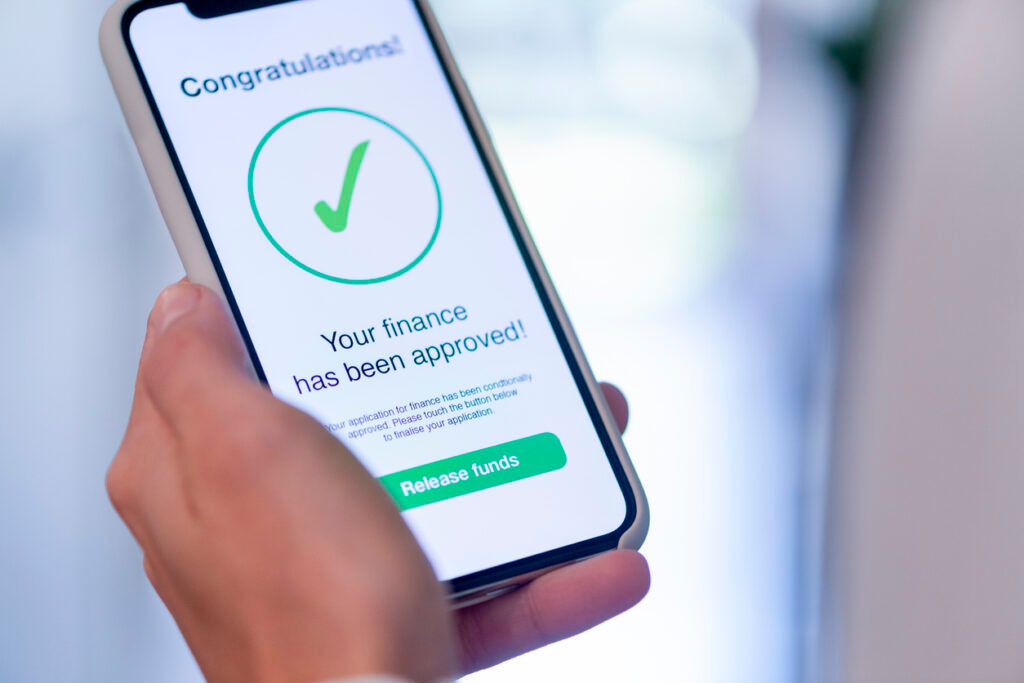How to Buy a House with Bad Credit but Good Income
The average credit score in the United States is 716, with credit levels varying by age. Members of Gen Z, who are still growing their wealth and credit history, have a credit score of 680 on average.
If you have a low credit score, you might worry that it will impact your ability to buy a house. While you might face some additional hurdles in the buying process, it is still possible to become a homeowner, even if your credit needs work.
Learn how to buy a house with bad credit but good income. Here are a few options to consider and steps you can take to improve your credit score.

Understanding Credit in Home Buying
Your credit score reflects how risky it is to lend money to you. Poor credit often reflects missed credit card payments, problems repaying loans, and other forms of debt. This is a warning sign to a lender that you might not have the ability to pay them back after you secure a loan.
Oftentimes, poor credit is a reflection of financial mistakes. You might have been irresponsible in your youth or made some poor decisions regarding your money. However, many people have bad credit because of situations out of their control. They might have been the victims of financial identity theft or experienced layoffs at work that prevented them from making payments.
Regardless of why you have poor credit, lenders will look at your credit score when deciding whether they should approve you for a loan. Most mortgage lenders will only approve loans for buyers who have a minimum credit score of 620. However, some lenders will accept loan applications if your credit is in the 500s.
When a mortgage lender moves forward with your home loan and you have poor credit, you might have a higher interest rate on your loan. This means that your loan is more expensive and your monthly payments will be higher. The bank charges a higher rate to account for the risk of issuing a loan to a borrower with poor credit. However, as your credit improves over time, you will have options to refinance or seek better loan terms with your updated score.
It’s possible to buy a house with bad credit but a good income. In fact, having a high gross income is one of the best ways to overcome this hurdle.
Mortgage Options for Buyers with Bad Credit
The first thing to know is that you have options to buy a house with bad credit. Lenders will still work with you and guide you through various options. Buying a home with a low credit score is also easier when you have decent income levels.
You can potentially save for a higher down payment and reduce the perceived risk to the lender. Here are a few places to start when searching for a home loan.
FHA Loans
FHA loans are backed by the Federal Housing Administration (FHA). The goal of FHA loans is to help first-time homebuyers secure financing even if they don’t have large down payment amounts or good credit scores.
There are two ways to secure FHA loans with poor credit. If your credit score is above 580, you may qualify to buy a house with a 3.5% down payment. If your credit score falls between 500 to 570, you can still qualify for an FHA loan but will need a 10% down payment. This second option is preferred by people who have low credit scores but high income levels because they can save for a new home.
Opting for the 10% down payment option can also make your loan more affordable in the long run. You won’t have to pay as much private mortgage insurance (PMI) which is applied to loans that are greater than 20% of the home’s value. Once you own 20% of your home, this insurance fee will drop and your monthly payment will be lower. PMI falls between 0.5% and 2.5% of the loan amount annually.
VA Loans
If you are a current or former member of the United States military, look into VA loans. These loans are designed to help service personnel become homeowners. The minimum credit score for a VA Loan is 620 but some lenders might approve appliances if your credit is above 600.
There are additional benefits to choosing VA loans as your source of financing. There are no down payment requirements for these loans and you won’t have to pay PMI. If you have a small savings, you don’t have to worry about putting it into the house.
These are designed to eliminate barriers to homeownership for members of the military. If you served your country, don’t let a bad credit score prevent you from living the American dream.
USDA Loans
If you are considering moving to a rural part of the country, look into USDA loans. These loans are provided by the United States Department of Agriculture to support rural Americans and encourage people to live in less populated areas. The USDA has an eligibility map that highlights which parts of the country qualify for rural loans.
The USDA doesn’t have minimum credit score requirements for its loans, but most lenders look for scores around 620. There also aren’t any down payment requirements, so you can take out a 100% loan if you don’t have a lot of money saved.
Conventional Loans
Even if you have a bad credit score, you can still look into conventional loans issued by banks, credit unions, and other financial service providers. Talk to mortgage lenders about your options and what your loan terms might look like.
Many lenders will at least have a conversation with potential buyers to go over any potential problems with issuing loans. You can take their financial advice and improve your application to make it more appealing when it’s time to buy a house.
Some mortgage lenders know of programs, grants, and support systems that can make homeownership possible for you. This is why it’s worth discussing your options even if you need to improve the results of your credit report.
Impact of Bad Credit on Mortgage Terms
A key part of buying a house is shopping around for a mortgage. This will allow you to compare mortgage loan terms and choose the best option based on your financial situation. You will also be able to see how your credit score impacts your loan options. Here are a few ways a bad credit report will impact your mortgage terms:
- Higher interest rates: the proposed interest rate might be higher than most loans offered to buyers at this time. This means your loan is more expensive in the long run.
- Stricter loan terms: lenders might try to mitigate the risk of giving you a loan by imposing payment penalties and stricter loan terms.
- Higher monthly payments: higher interest and stricter terms lead to larger monthly payments. You will need to make sure these payments fall within your budget and your debt-to-income ratio.
Bad credit can affect the size of the house you buy and its location. If you have to account for a larger monthly payment because of unfavorable interest rates, you will have less money left over to pay off the principal of the loan.
You can buy a house with bad credit if you have a large income because it means that you can afford a larger monthly payment. However, almost every buyer has a limit to what they can pay.
Mortgage Payments Variation by Credit Score
Low credit scores lead to higher interest rates, which will have a direct impact on your monthly payments. Even a one percent change in interest can have a significant impact on your loan affordability.
If you have a 4.5% rate on a 30-year fixed loan, you can expect to pay $247,220 in interest. If your rate drops to 3.5% then you will only pay $184,968 interest on the same size loan. While every loan calculation is different, a one percent interest rate change in this example would cost a home buyer $62,252 by the time the house is paid off.
A poor credit report will affect your loan approval because higher interest rates also affect monthly payments. Using the example above, the loan with the higher interest rate would have a monthly payment of $1,520. The loan with the lower rate would have a monthly mortgage payment of $1,347.
Most mortgage lenders won’t approve loans if your debt-to-income ratio is higher than 36%. This is your monthly debt divided by your gross monthly income. To afford a $1,520 monthly payment with a 36% DTI, you would need to earn at least $4,222 per month (about $50,000 per year).
For a monthly payment of $1,347, you would need to earn $3,742 per month (about $45,000 per year). This also assumes that you don’t have any other debts that you need to pay off. These calculations also don’t factor in property taxes, homeowners insurance, and other costs.
This is another reason why having a larger income stream is a good thing. You will have a low DTI even with a high monthly payment.
Improving Your Credit Score for Home Buying
If you are worried about your credit score, take steps to improve it before you start the home-buying process. If you focus on improving your bad credit over a year (or even six months), you can make your loan applications more desirable to mortgage lenders. Here are a few ways to improve your credit score and develop greater financial stability.
- Correct credit report errors: look for any mistakes that could hurt your credit and dispute these inaccuracies. These include false missed payments, lines of credit you never took out, and unexplained debt. Removing these blemishes can boost your bad credit.
- Minimize hard inquiries: lenders run hard inquiries on your credit when they approve you for loans. These inquiries can hurt your score in the short run. Avoid taking out loans or financing purchases, which could lead to credit inquiries.
- Never miss payments: it is better to make the minimum monthly payments on your loans instead of missing payments altogether.
- Strategically pay off your debt: if possible, decide which debts you want to pay off completely. The loans with the highest interest rates and APR are the most expensive, so target these. You can also work to pay off a lot of smaller loans to consolidate your debt.
- Ask for credit increases. Credit scores are usually based on utilization. If you have higher credit limits, your utilization decreases and your score might go up.
Debt and bad credit can be overwhelming. If you aren’t sure where to start, meet with a financial advisor. They can help you develop a plan of action to improve your finances and turn a poor credit score into a desirable one.
High Down Payments Make Homes More Affordable
If you are trying to buy a house with bad credit, two factors can make your monthly payments more affordable: your down payment and income. The higher the down payment, the smaller your loan will be. While you might be tempted to accept loans where you don’t have to put any money down, you will have to contend with higher payments that could price you out of certain markets.
Higher down payments can also lower your interest rates. This is because the bank is taking on less of a risk in funding the purchase of the property. If the bank forecloses on the house due to missed payments, they are more likely to get their money back on a smaller loan.
Use this information when deciding how you want to improve your credit score. Some potential buyers spend a few years paying down their debt before they take on a mortgage. Other buyers save up large down payments so they can have smaller mortgages while they improve their bad credit. An experienced financial advisor should be able to guide you to the best decision based on your needs and goals.
The other factor to consider is your income. Higher income levels will allow for larger monthly payments so you can take on bigger or more expensive loans. Consider applying for jobs that allow you to advance your career while growing your paycheck.
Once you have been at the company for at least six months, you can apply for a home loan. During this time, you can aggressively save for a down payment or work to pay down your debt.
Preparing for the Home Purchase
Regardless of your credit score, buying a house is a complicated process that requires a lot of financial evaluations and documentation. You can streamline this process by staying organized and preparing to meet with potential lenders. Here’s what you need to do.
- Get organized. Gather your pay stubs, W2 forms, bank statements, and other financial documents that reflect your monthly income.
- Pay your taxes. If you haven’t already, file your taxes for this year. Prepare to share your tax returns with your lender.
- Estimate your down payment. See how much you have saved to purchase a house. The more you have, the smaller your monthly payment.
- Identify how much house you can afford. Calculate your DTI to estimate your maximum monthly payment.
- Decide whether you want to live. Set “must have” criteria for neighborhoods, home sizes, its condition, and features. Make sure this criteria is reasonable based on your financial goals.
- Get pre-qualified. Work with a lender to pre-qualify you for a loan based on your financial situation.
- Hire a Realtor. Find a real estate agent who can help you tour homes. Start looking at properties you are interested in.
- Make an offer. Once you find your ideal home, contact your lender for pre-approval. Your lender and your Realtor will help you make an offer on the house.
Once your offer is accepted, you will move into the underwriting process. Your lender will ask for documents related to your financial health and the condition of the house. The more organized you are, the faster and smoother this process will be.
Once your home loan is approved, you will be cleared to close. Congratulations, you just bought a house with bad credit and can still afford it!
Don’t Let a Bad Credit Report Ruin Your Homeownership Plans
Low credit scores can be stressful and make buyers worry about the viability of owning a home. Fortunately, you can take steps today to secure financing and live your dream of becoming a homeowner.
First, check your credit against the minimum credit score requirements set by lenders. You might be closer to their thresholds than you realize. Next, pull your other finances together. Your savings and other accounts might make your loan application more desirable.
With a little bit of work, you can raise your credit score and make your loan application desirable to lenders – even if you are applying for conventional loans.
Use FastExpert to find real estate agents who support buyers with bad credit. They have likely seen worse credit scores than yours and will help you get the financing you need.





